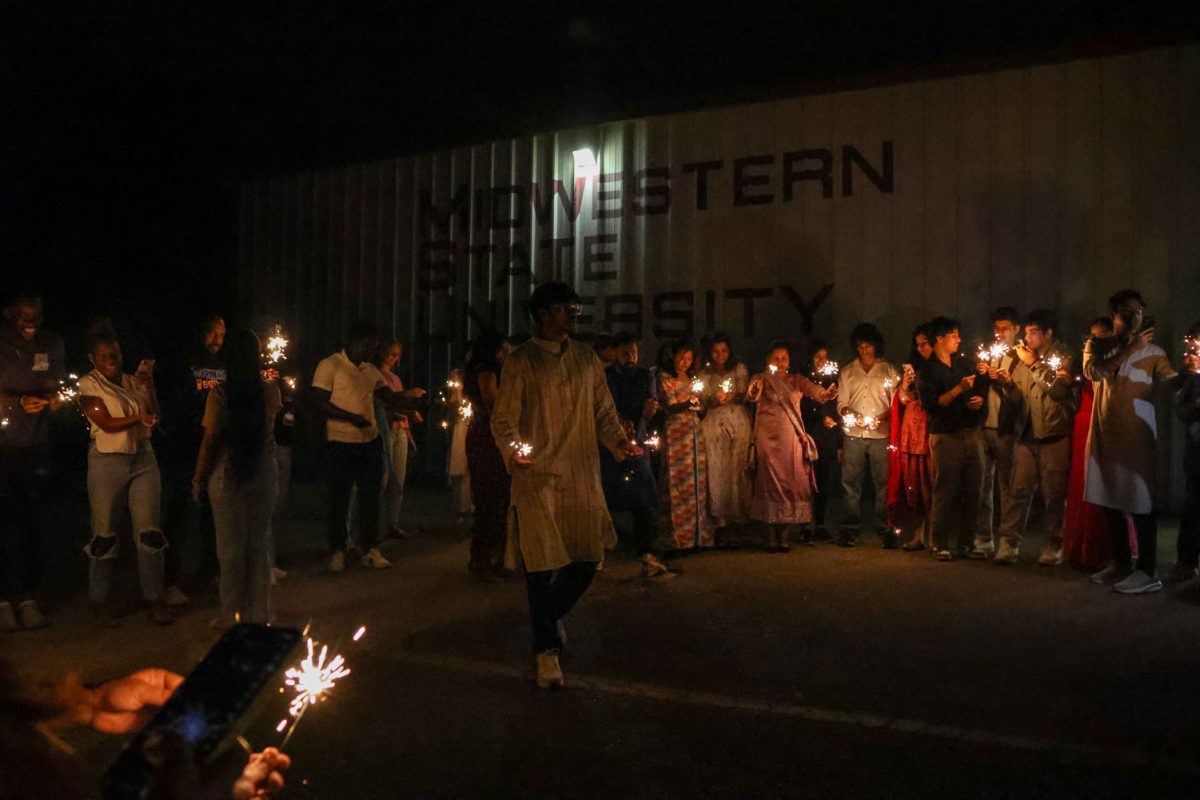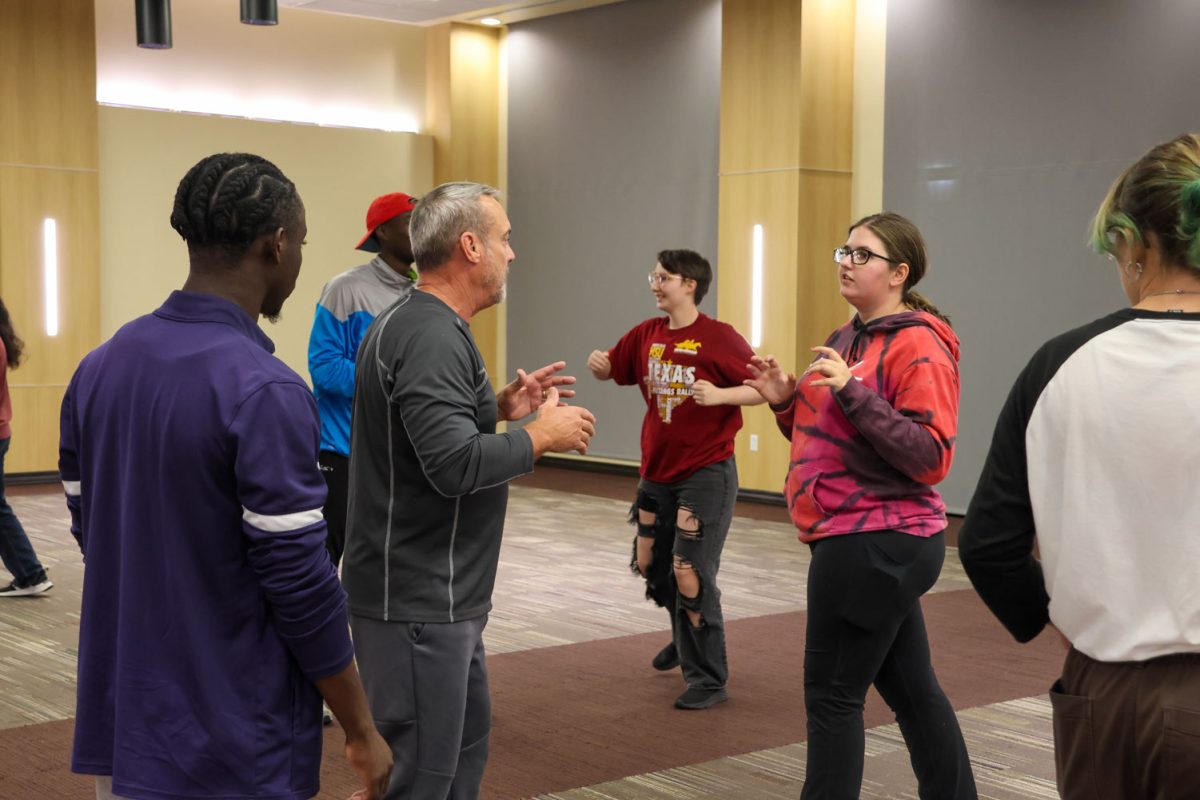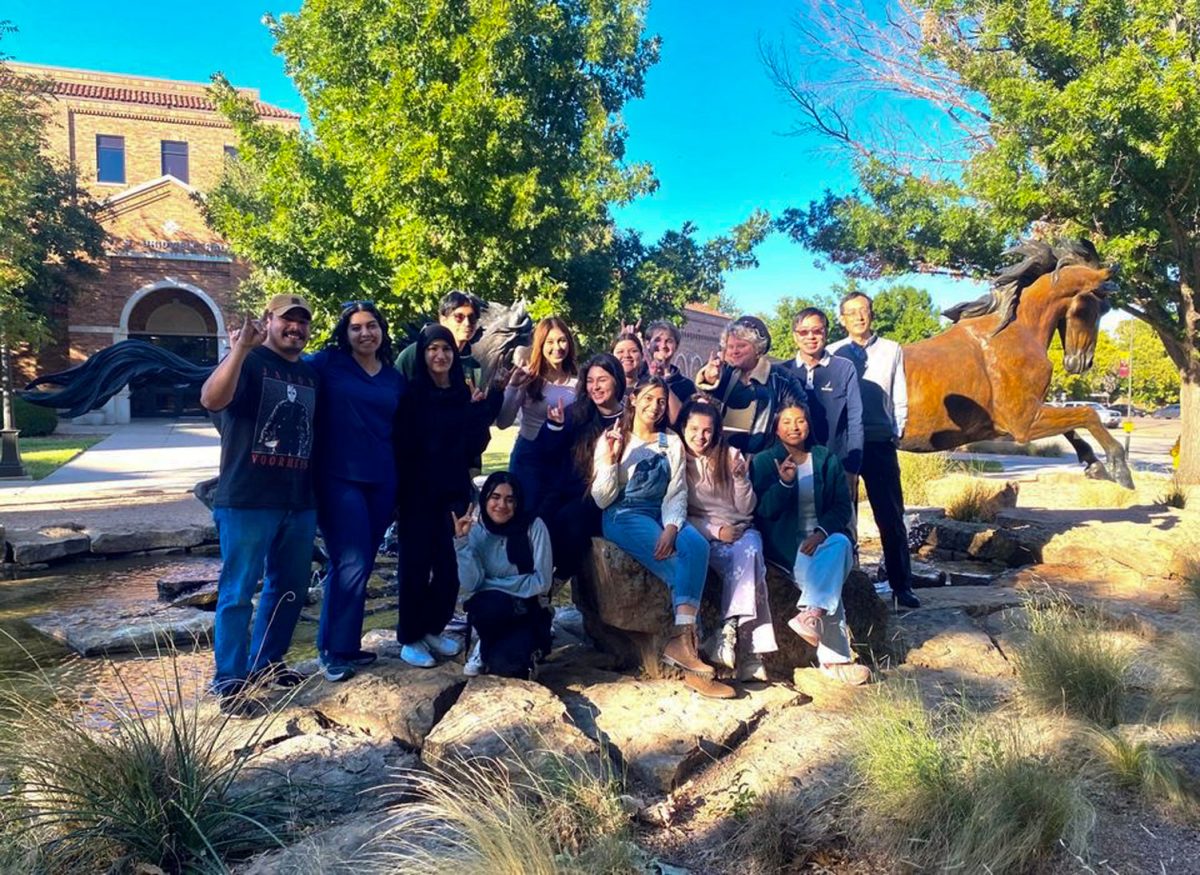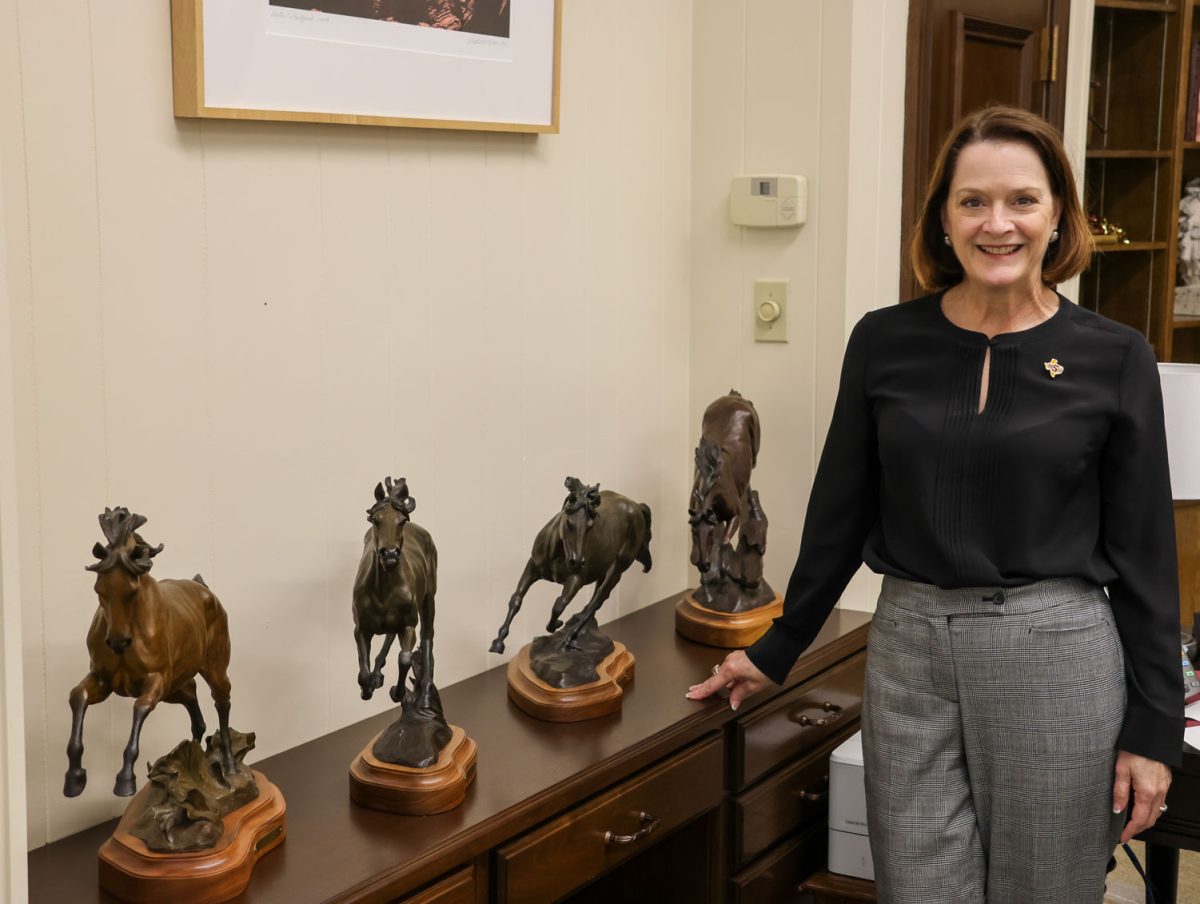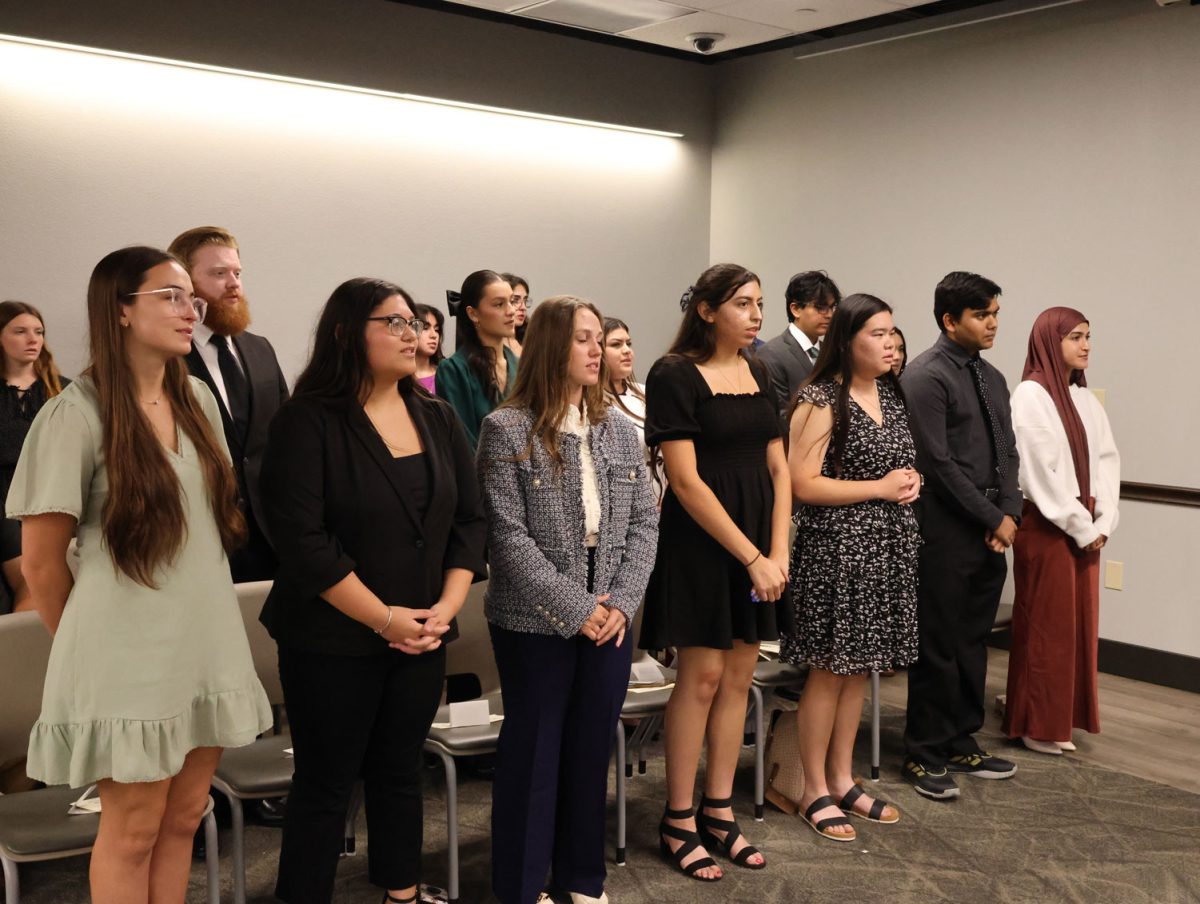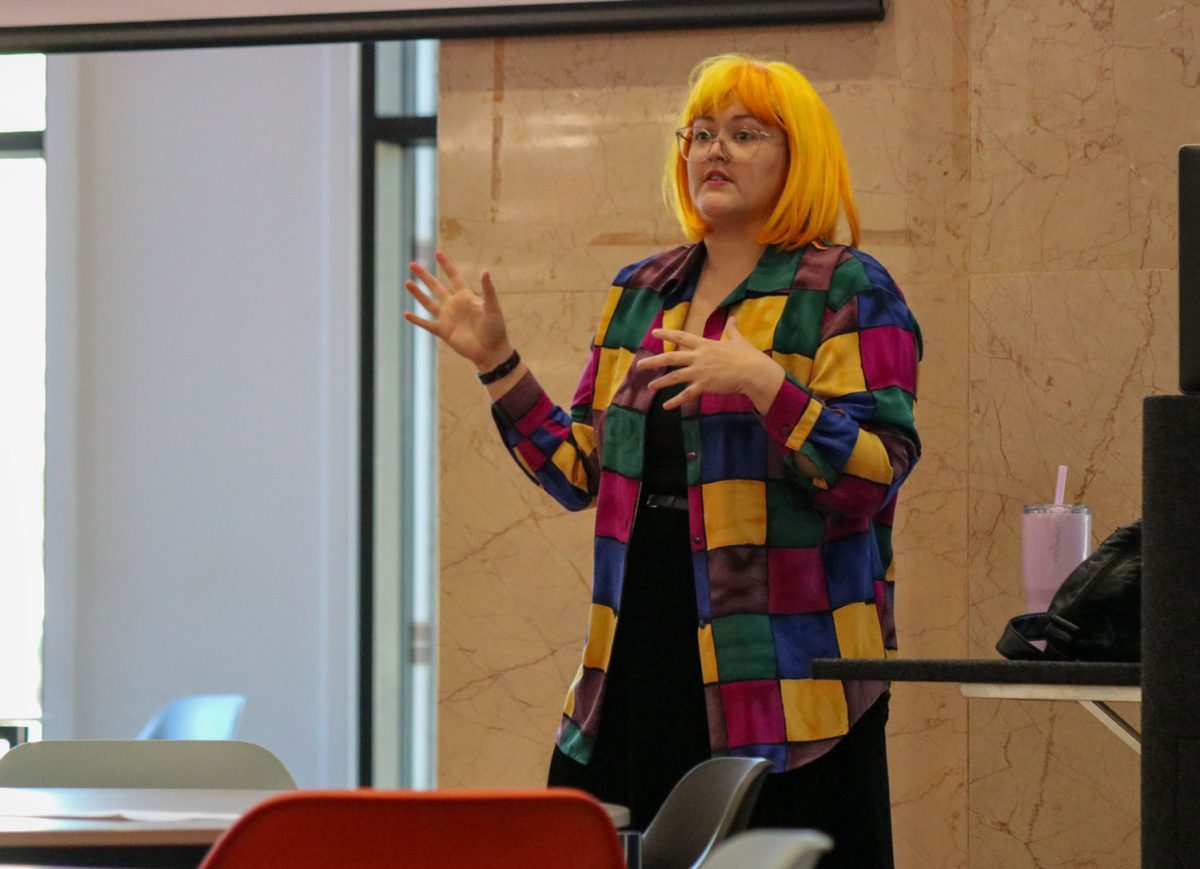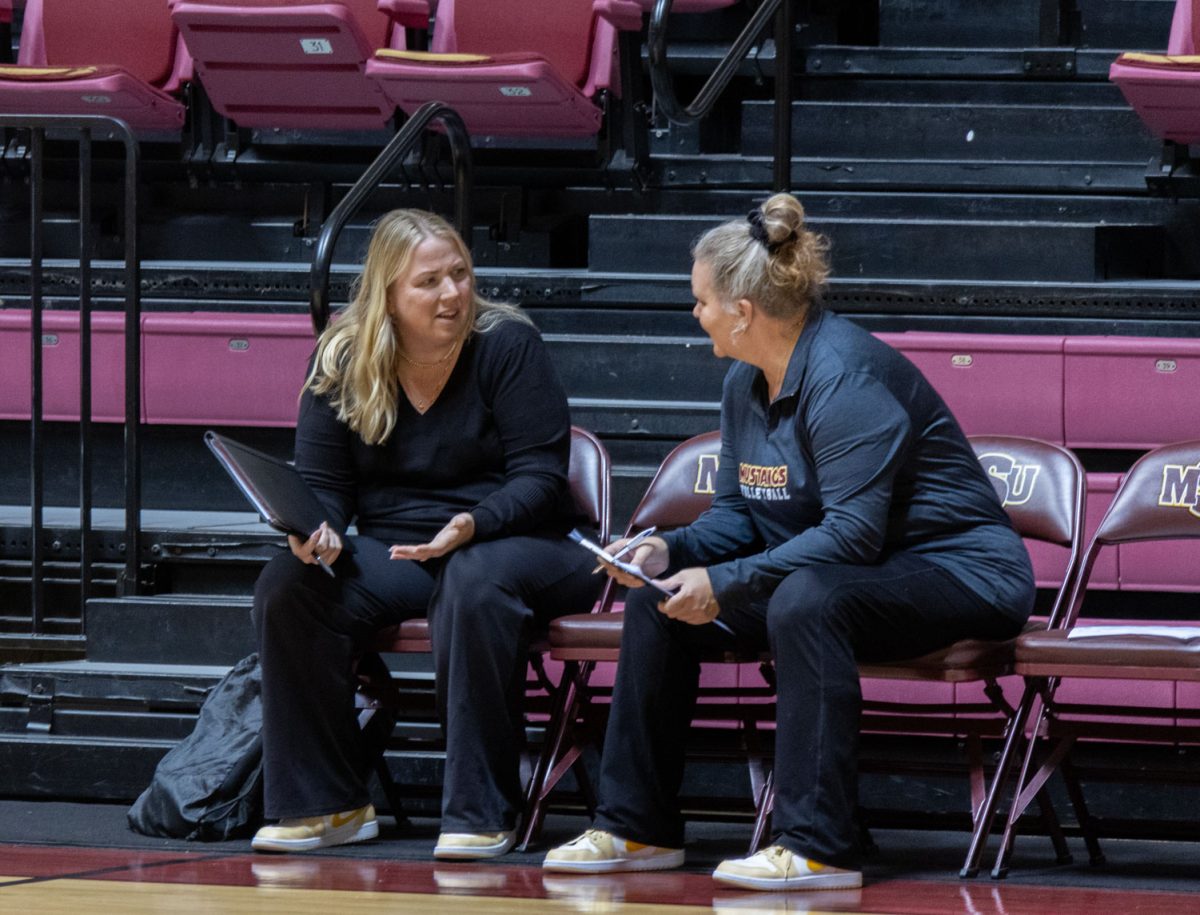Although he’s retiring this August after 48 years with Midwestern State, University President Jesse Rogers is confident he’s leaving the school in good hands, due in large part to some of the younger faculty at MSU.
“The young faculty coming in here today want to learn and they all want to be with their students,” Rogers said. “They all want their students around them and they want to be doing something with them.”
Rogers added that the new generation of professors are more open to input about how to be better teachers.
“The crowd that I graduated with – if somebody had told us they were going to teach us how to teach, we would have been offended,” Rogers said.
When highlighting faculty members who exemplified this newer model of professors, Rogers mentioned Charles Watson, assistant professor of biology. Watson, who started at MSU in 2013, said being a professor goes beyond teaching.
“Teaching biology is probably the easiest part of the job,” Watson said. “My philosophy is to deliver as much information, but deliver it in a way that I’m not just spitting out facts, but also teach concepts.”
Watson said knowing concepts and not just facts will give students a better toolbox for when they move on to the next phase of their lives.
“If you have a good foundation of how to think critically and think about concepts, then that’s going to serve you far better than if I just stood up there and lectured on whatever facts are out there,” Watson said.
Watson said professors today, although they may not be so different from the professors who taught him, need to love what they’re teaching.
“If you’re not excited about a job anymore, go do something else, especially here,” Watson said. “If you’re not excited and you don’t love what you’re doing, the students are going to pick up on that. If there’s a day that I’m not enthusiastic about this job, that will be the last day that I do this job.”
His personality and passion, according to Watson, have brought in many students, like three of his graduate students who were undergraduates that enjoyed what the was doing in the lab.
“My personality brings in a number of students because they see ‘Hey, this guy loves what he’s doing,'” Watson said. “Short of saying you have to be a politician, it pays to be a likable person. If it’s just grabbing a cup of coffee and walking around down on the first floor and interacting with students or going over to the student center, having those interactions are important.”
Watson’s connection to his students has paid off – this year, he received the Biology Professor of the Year Award and the Faculty Member of the Year Award from Student Government Association. He’s a member of the First Year Experience Taskforce.
Rogers also said fostering working relationships between faculty and students is an important part of the college experience, now more than ever.
“Getting to know your faculty, knowing your administration, writing for The Wichitan, playing in the band, is a huge part of your education for getting out in the world and living more so than it was for me,” Rogers said. “I wouldn’t have gone into teaching if I didn’t like college-age students. I have always gotten along with, had fun with, and wanted to teach college-age students.”
Watson said now when he was in school, there were professors who were actively working in the field and some who were more focused on teaching, and this variety is still prevalent at MSU today.
“As I got into this position and started noticing and talking to my peers, it’s a diverse group of people and you can’t really pin down the professor type,” Watson said. “We had professors here that were chugging out papers like crazy just like some of us now, and some people are more focused on their teaching. I think it’s a good mix.”
Although Watson earned his doctorate in 2008, he said he continues to learn more about his field from his peers and even his students.
“I never quit learning and I learn from students as much as I learn from anything else,” Watson said. “I probably read five or six journal articles a week. I’m continually writing papers, I’m continually doing research, and in the course of doing that, you end up reading very broadly. Reading broadly is important for everybody’s education.”
Watson said it’s important for professors to continually learn, just as important as it is for students.
“We can’t get to a point to where we think we know everything,” Watson said. “There’s no place for that in a modern education. We can learn just as much as y’all do and we should.”
Another key factor to Watson’s success is his ongoing research, and he says when he can gets students in on the process, it’s even better.
“When I bring them [students] into the lab and you can see their inquisitive juices flowing and they really get into that part of it, and when that actually turns into a product that gets disseminated not just at Midwestern but into the entire academic community, then we’re doing what our charge is,” Watson said. “My influence should extend well beyond the campus.”
Watson said smaller schools like MSU present a unique set of parameters for incoming professors, but these characteristics can’t be seen as constraints.
“Especially starting out at a smaller institution, you can’t look at speed bumps and consider them roadblocks.,” Watson said. “There’s certain thing that go with being at a smaller institution like Midwestern. The funding is never going to be as great as if you’re at UT-Austin. You’re always going to teach more. You’re going to have a bigger mix of students as far as ability levels go.”
Watson said although smaller schools may have their own set of challenges, it’s still possible to be a great professor.
“You also have to be good at doing more with less,” Watson said. “It’s completely possible. There’s no reason that someone can’t be a great teacher, a great researcher, and great with service at a smaller institution.”
Ultimately, Watson said his biggest piece of advice for new professors is to stick with it and work harder than everybody else.



